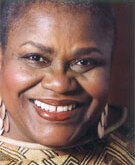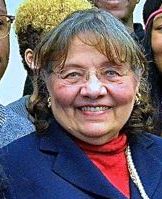People's Freedom Movement can refer to:
People's Freedom Movement can refer to:

The free software movement is a social movement with the goal of obtaining and guaranteeing certain freedoms for software users, namely the freedom to run the software, to study the software, to modify the software, and to share possibly modified copies of the software. Software which meets these requirements is termed free software. The word 'free' is ambiguous in English, although in this context, it means 'free as in freedom', not 'free as in zero price'. A common example is, "to think of free speech, not free beer."
The Free Software Definition written by Richard Stallman and published by Free Software Foundation (FSF), defines free software as being software that ensures that the end users have freedom in using, studying, sharing and modifying that software. The term "free" is used in the sense of "free speech," not of "free of charge." The earliest-known publication of the definition was in the February 1986 edition of the now-discontinued GNU's Bulletin publication of FSF. The canonical source for the document is in the philosophy section of the GNU Project website. As of April 2008, it is published there in 39 languages. FSF publishes a list of licences which meet this definition.

Bernice Johnson Reagon is a song leader, composer, scholar, and social activist, who in the early 1960s was a founding member of the Student Non-violent Coordinating Committee's (SNCC) Freedom Singers in the Albany Movement in Georgia. In 1973, she founded the all-black female a cappella ensemble Sweet Honey in the Rock, based in Washington, D.C. Reagon, along with other members of the SNCC Freedom Singers, realized the power of collective singing to unify the disparate groups who began to work together in the 1964 Freedom Summer protests in the South.
“After a song,” Reagon recalled, “the differences between us were not so great. Somehow, making a song required an expression of that which was common to us all.... This music was like an instrument, like holding a tool in your hand.”

The Student Nonviolent Coordinating Committee was the principal channel of student commitment in the United States to the civil rights movement during the 1960s. Emerging in 1960 from the student-led sit-ins at segregated lunch counters in Greensboro, North Carolina, and Nashville, Tennessee, the Committee sought to coordinate and assist direct-action challenges to the civic segregation and political exclusion of African Americans. From 1962, with the support of the Voter Education Project, SNCC committed to the registration and mobilization of black voters in the Deep South. Affiliates such as the Mississippi Freedom Democratic Party and the Lowndes County Freedom Organization in Alabama increased dramatically the pressure on federal and state government to enforce constitutional protections.

Guy Hughes Carawan Jr. was an American folk musician and musicologist. He served as music director and song leader for the Highlander Research and Education Center in New Market, Tennessee.
Freedom Summer, also known as the Freedom Summer Project or the Mississippi Summer Project, was a volunteer campaign in the United States launched in June 1964 to attempt to register as many African-American voters as possible in Mississippi. Blacks had been restricted from voting since the turn of the century due to barriers to voter registration and other laws. The project also set up dozens of Freedom Schools, Freedom Houses, and community centers in small towns throughout Mississippi to aid the local Black population.

Ella Josephine Baker was an African-American civil rights and human rights activist. She was a largely behind-the-scenes organizer whose career spanned more than five decades. In New York City and the South, she worked alongside some of the most noted civil rights leaders of the 20th century, including W. E. B. Du Bois, Thurgood Marshall, A. Philip Randolph, and Martin Luther King Jr. She also mentored many emerging activists, such as Diane Nash, Stokely Carmichael, Rosa Parks, and Bob Moses, whom she first mentored as leaders in the Student Nonviolent Coordinating Committee (SNCC).
Freedom of movement, mobility rights, or the right to travel is a human rights concept encompassing the right of individuals to travel from place to place within the territory of a country, and to leave the country and return to it. The right includes not only visiting places, but changing the place where the individual resides or works.

Frederick Lee "Fred" Shuttlesworth was a U.S. civil rights activist who led the fight against segregation and other forms of racism as a minister in Birmingham, Alabama. He was a co-founder of the Southern Christian Leadership Conference, initiated and was instrumental in the 1963 Birmingham Campaign, and continued to work against racism and for alleviation of the problems of the homeless in Cincinnati, Ohio, where he took up a pastorate in 1961. He returned to Birmingham after his retirement in 2007. He helped Martin Luther King Jr. during the civil rights movement.

Diane Judith Nash is an American civil rights activist, and a leader and strategist of the student wing of the Civil Rights Movement.
Native Americans may refer to:
Revolutionary War(s) may refer to:
Annie Bell Robinson Devine (1912–2000) was an American activist in the Civil Rights Movement.
Radio Freedom was the radio propaganda arm of the African National Congress (ANC) and its fighting wing Umkhonto we Sizwe (MK) during the anti-Apartheid struggle from the 1970s through the 1990s. It was the oldest liberation radio station in Africa. Listening to Radio Freedom in Apartheid-era South Africa was a crime carrying a penalty of up to eight years in prison.
The Freedom Singers originated as a student quartet formed in 1962 at Albany State College in Albany, Georgia. After folk singer Pete Seeger witnessed the power of their congregational-style of singing, which fused black Baptist a cappella church singing with protest songs and chants, their performances drew aid and support to the Student Nonviolent Coordinating Committee (SNCC) during the emerging civil rights movement. Seeger suggested The Freedom Singers as a touring group to the SNCC executive secretary James Forman as a way to fuel future campaigns. As a result, communal song became essential to empowering and educating audiences about civil rights issues and a powerful social weapon of influence in the fight against Jim Crow segregation. Rutha Mae Harris, a former freedom singer, speculated that without the music force of broad communal singing, the civil rights movement may not have resonated beyond of the struggles of the Jim Crow South.

The Landless People's Movement was an independent social movement in South Africa. It consisted of rural people and people living in shack settlements in cities. The Landless People's Movement boycotted parliamentary elections and had a history of conflict with the African National Congress. The Landless People's Movement was affiliated to Via Campesina internationally and its Johannesburg branches to the Poor People's Alliance in South Africa.
Black Power is a political slogan and a name which is given to various associated ideologies which aim to achieve self-determination for people of African descent. It is primarily, but not exclusively, used by African American activists and proponents of what the slogan entails in the United States. The Black Power movement was prominent in the late 1960s and early 1970s, emphasizing racial pride and the creation of black political and cultural institutions to nurture, promote and advance what was seen by proponents of the movement as being the collective interests and values of Black Americans.
Hollis Watkins is an activist who was part of the Civil Rights Movement activities in the state of Mississippi during the 1960s. He became a member and organizer with the Student Nonviolent Coordinating Committee (SNCC) in 1961, was a county organizer for 1964's "Freedom Summer", and assisted the efforts of the Mississippi Freedom Democratic Party to unseat the regular Mississippi delegation from their chairs at the 1964 Democratic Party national convention in Atlantic City. He founded Southern Echo, a group that gives support to other grass-roots organizations in Mississippi. He also is a founder of the Mississippi Veterans of the Civil Rights Movement.
David J. Dennis is a civil rights activist active in the movement since the 1960s. He grew up in the segregated area of Omega, Louisiana, and worked as co-director of the Council of Federated Organizations (COFO), as director of Mississippi's Congress of Racial Equality (CORE), and as one of the organizers of the Mississippi Freedom Summer of 1964. Dave Dennis worked closely with both Bob Moses and Medgar Evers as well as members of SNCC, the Student Nonviolent Coordinating Committee. Dennis' first involvement in the Civil Rights Movement was at a Woolworth sit-in organized by CORE and he went on to become a Freedom Rider in 1961. More recently Dennis has put his activism toward a new project, the Algebra Project, which is a nonprofit organization run by Bob Moses that aims to improve the mathematics education for minority children. Dennis also speaks about his experiences in the movement through an organization called Dave Dennis Connections.